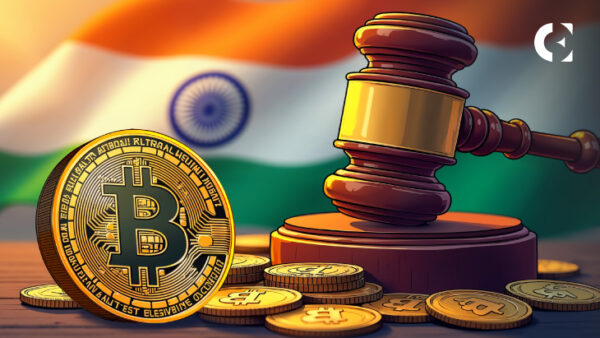- India may create a sovereign Bitcoin reserve inspired by US and Bhutan models.
- Regulatory uncertainty and high crypto taxes hinder India’s digital asset progress.
- Clear rules and a Bitcoin reserve pilot could boost India’s economic resilience.
A high-profile spokesperson for India’s ruling party is now publicly calling for the government to consider establishing a sovereign Bitcoin reserve.
Pradeep Bhandari, the ruling party, Bharatiya Janata Party’s national spokesperson, highlighted the changing global situation and suggested India should follow the examples set by countries like the United States and Bhutan, which have taken concrete steps to include Bitcoin in their national financial strategies.
New Push for a National Crypto Strategy
Bhandari referenced the U.S., where over 200,000 Bitcoins, seized during legal proceedings and valued at more than $20 billion, have been converted into a strategic reserve. Bhutan, by contrast, has capitalized on its abundant hydropower resources to mine Bitcoin worth over $1 billion.
The proposal from Bhandari suggests India could establish a small Bitcoin reserve, holding between 5,000 and 10,000 BTC. This reserve would be funded without relying on taxpayer money and managed using institutional-grade security, with assets stored in audited cold wallets.
India’s Readiness and Regulatory Challenges
India possesses major renewable energy resources and a strong IT infrastructure that could support a national Bitcoin mining initiative. Bhandari emphasized that such an initiative might contribute to energy independence, stabilize reserve volatility, and foster participation in the expanding digital asset market.
However, the country’s current regulatory environment remains unclear. Cryptocurrency gains are taxed at a flat 30%, with additional tax deductions applied at a rate of 1% on transactions exceeding $115. Yet, India lacks a comprehensive regulatory framework governing exchanges, mining, and government reserves.
Related: India’s Supreme Court Pressures Government to Regulate Crypto, Not Ban It
Reports indicate that some cryptocurrency exchanges support Bhandari’s call and have urged the government to issue a consultation paper on the proposal. The Finance Ministry is reportedly reviewing the idea, while the Reserve Bank of India has not publicly commented.
Is India at Risk of Falling Behind?
The call for action comes as the global context shifts rapidly. The International Monetary Fund recently classified Bitcoin as a capital asset. Several countries, including Russia, China, Brazil, and the United States, have advanced their national crypto strategies, highlighting a global trend toward formal adoption.
Related: India Wants Access to Your DMs: New Tax Law Targets Crypto Activity
During India’s G20 presidency in 2023, the government facilitated international crypto discussions. Still, other nations have accelerated their actions while India continues deliberations. Bhandari argued that establishing clear regulations and launching a sovereign Bitcoin reserve pilot could enhance India’s economic resilience and modernize its financial infrastructure.
Disclaimer: The information presented in this article is for informational and educational purposes only. The article does not constitute financial advice or advice of any kind. Coin Edition is not responsible for any losses incurred as a result of the utilization of content, products, or services mentioned. Readers are advised to exercise caution before taking any action related to the company.







